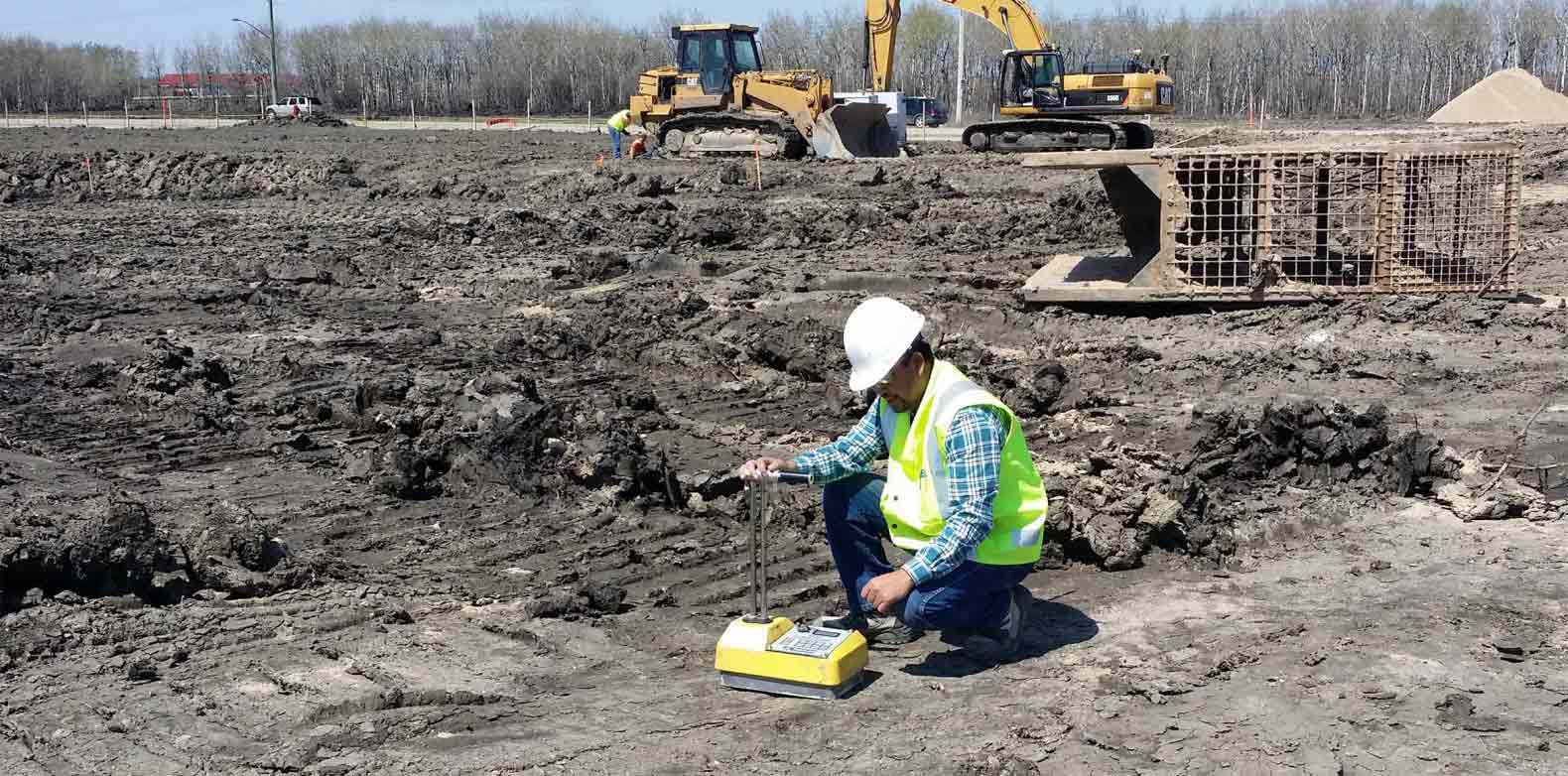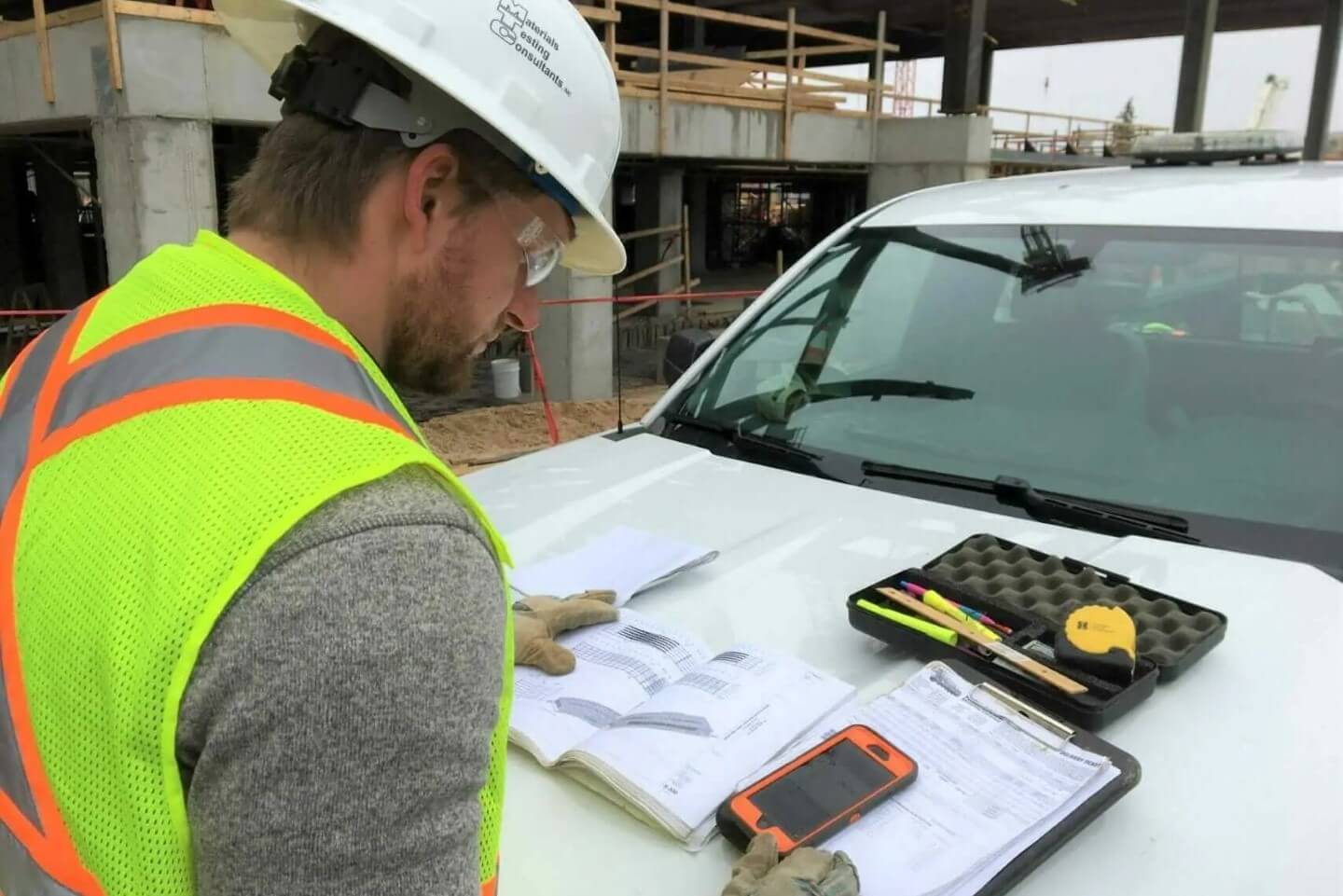Geotechnical Engineering What Is It and Why Is It Crucial for Construction Projects?
Geotechnical Engineering What Is It and Why Is It Crucial for Construction Projects?
Blog Article
A Detailed Review of the Key Providers Used by Consulting Civil Engineering Professionals in Modern Building
Consulting civil design experts are important to the success of modern building and construction projects, using a multifaceted collection of solutions that deal with various obstacles. geotechnical engineering in south africa. As the complexity of building and construction projects proceeds to evolve, understanding the complete range of services they give ends up being increasingly crucial for stakeholders.
Site Assessment and Usefulness Studies
When starting any type of construction project, recognizing the site's features is vital, as it directly influences the expediency and design of the advancement. Site assessment and expediency research studies are necessary parts of the pre-construction stage, enabling stakeholders to make enlightened choices. These researches entail a comprehensive assessment of the physical, ecological, and regulatory aspects of the website.

By incorporating these components, civil design experts can give a holistic sight of the site's feasibility for the intended advancement. Ultimately, complete site assessments and usefulness studies lay the groundwork for effective project execution, decreasing risks and enhancing resource allotment.
Architectural Layout and Analysis
Complying with a comprehensive site evaluation and feasibility study, the following critical stage in the building process is architectural design and evaluation. This necessary service involves the growth of structural systems that make certain the safety and security, resilience, and financial viability of a project. Consulting civil engineers utilize sophisticated techniques and software application to evaluate loads, tensions, and material properties, guaranteeing that designs conform with appropriate codes and criteria.
Structural style incorporates different elements, consisting of beams, columns, structures, and bearing walls. By applying principles of technicians and product science, engineers develop structures that can withstand environmental pressures such as wind, seismic activity, and snow lots. The analysis phase entails careful calculations to forecast the actions of these frameworks under different conditions, guaranteeing they can execute as planned throughout their life expectancy.
In addition, speaking with engineers team up carefully with designers and other stakeholders to incorporate architectural aspects visually and functionally. The deliverables generally include detailed drawings, requirements, and detailed reports that promote the building and construction procedure. Eventually, efficient structural layout and analysis are essential in reducing risks, maximizing resources, and achieving effective project outcomes in contemporary building and construction.
Task Management and Sychronisation
Reliable job management and control are important elements of effective civil engineering services, ensuring that building tasks are provided promptly, within budget, and to the required quality requirements. Consulting civil designers play an important duty in coordinating various project elements, from preliminary preparation via to predict conclusion. This entails not just the technological facets of design and construction however likewise the calculated monitoring of stakeholders, resources, and look what i found timelines.

Furthermore, civil engineering professionals highlight the importance of documents and reporting throughout the project lifecycle - geotechnical engineering in south africa. By preserving exact documents, they ensure transparency and liability, which cultivates count on among all celebrations entailed. Ultimately, skillful project administration and sychronisation bring about enhanced job results, aligning with client assumptions and adding to the total success of the building and construction venture
Regulatory Compliance and Permitting
Effective task monitoring lays the foundation for addressing regulatory conformity and permitting demands in civil engineering tasks. Making certain adherence to regional, state, and government guidelines is vital for the effective implementation and conclusion of any kind of building and construction venture. Consulting civil engineering professionals play an essential duty in navigating the facility landscape of regulative structures and allowing processes.
These professionals are skilled in zoning laws, constructing codes, environmental guidelines, and safety and security requirements that govern building and construction practices. They conduct comprehensive assessments to recognize all suitable laws, guaranteeing that projects abide by required lawful demands. By collaborating with governmental firms and stakeholders, seeking advice from designers help with the allowing procedure, enhancing approvals and reducing hold-ups.
Moreover, they prepare and submit the requisite documentation, such as website strategies, ecological effect evaluations, and engineering reports. This positive method not just promotes conformity however also enhances job feasibility and sustainability. Inevitably, efficient governing compliance and allowing are vital elements of a successful civil engineering task, protecting both the environment and public welfare while adding to the overall honesty and success of building and construction efforts.
Lasting Style Practices
Sustainable style techniques are increasingly identified as necessary components in civil design, with a focus on decreasing environmental impact while maximizing source efficiency. These practices encompass a series of methods focused on promoting ecological equilibrium and lowering the carbon impact additional resources of construction projects.
One key aspect of sustainable design is the integration of renewable energy resources, such as solar and wind, right into structure layouts. straight from the source This not just reduces dependence on nonrenewable fuel sources but likewise boosts long-term price financial savings. Additionally, making use of lasting products, including recycled or rapidly renewable resources, plays a substantial duty in lessening waste and preserving all-natural sources.
Water monitoring approaches, such as rain harvesting and effective watering systems, are likewise critical in sustainable style. These practices help in minimizing water intake and safeguarding neighborhood water ecosystems. In addition, environmentally delicate website planning makes sure minimal disruption to the natural landscape and promotes biodiversity.
Consulting civil design professionals are important in executing these sustainable design practices. Their experience enables the execution of cutting-edge solutions that align with both regulatory needs and customer objectives, inevitably adding to an extra sustainable constructed atmosphere.
Verdict
In summary, consulting civil design professionals give necessary services that underpin the success of modern-day building tasks. With thorough site analyses, ingenious architectural design, efficient project management, adherence to governing requirements, and the application of lasting methods, these specialists add to the production of safe, effective, and environmentally liable developments. The combination of these vital services not only improves task outcomes but likewise advertises a lasting future in the construction market.
Reliable job monitoring and coordination are crucial parts of effective civil design services, guaranteeing that building and construction projects are delivered on time, within budget plan, and to the called for quality standards. Consulting civil engineers play a crucial function in managing numerous task components, from initial planning with to predict completion. Ultimately, skillful project administration and control lead to improved job end results, straightening with customer assumptions and adding to the total success of the building and construction undertaking.

Report this page